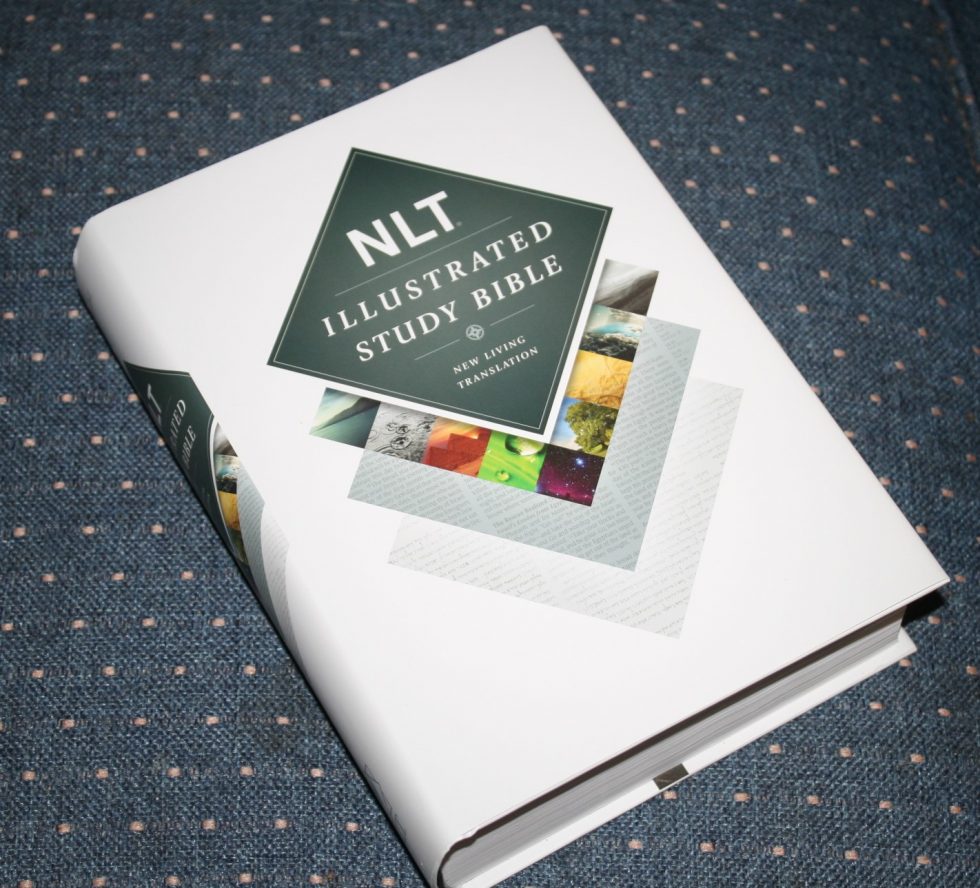
Over the past few years study Bibles have been getting larger and more colorful. The information they contain is getting more detailed and their graphics are more prominent. Tyndale joins in with their very own full-color edition – the NLT Illustrated Study Bible. In this review I take a look at the hard cover edition.
Features
- NLT
- Hard cover
- 9-point font
- Black letter
- Cross references
- Full color illustrations
- Book introductions
- Articles
- Notes
- Hebrew and Greek word studies
- Features index
- Notes index
- Dictionary/Concordance
- 14 pages of maps
- Index to maps
- 2640 pages
- 75 X 6.75 X 2.50
- ISBN: 9781496402004
Binding
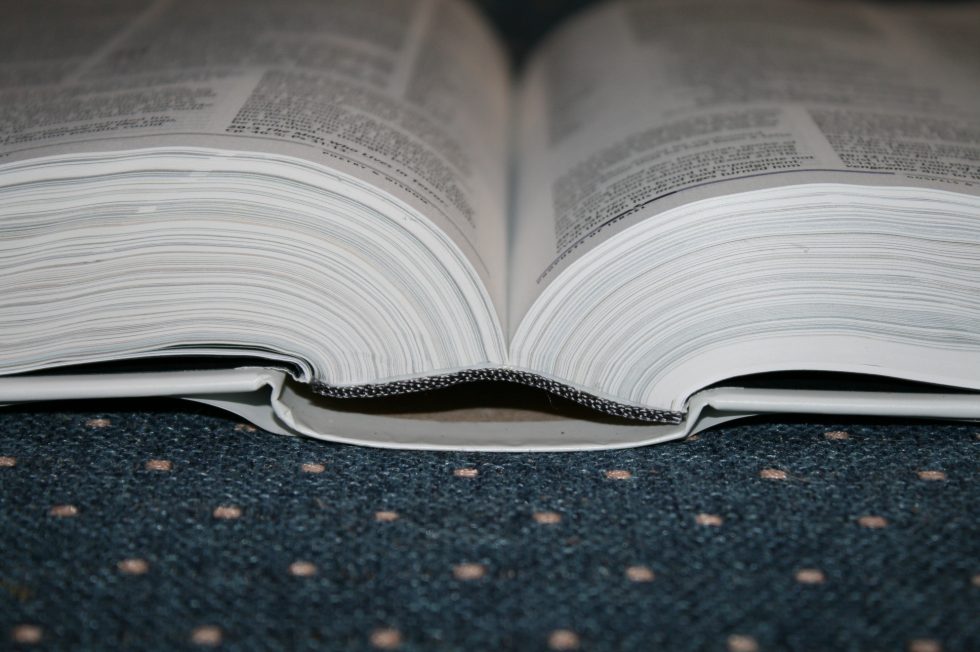
This edition is hard cover. It comes with a sleeve and a dust jacket. The cover under the dust jacket looks the same as the dust jacket itself. I removed mine to make this heavy Bible easier to handle. The binding looks to be glued even though the marketing material says it’s sewn. If it is sewn I can’t tell by looking. This is concerning considering how large this Bible is.
Paper
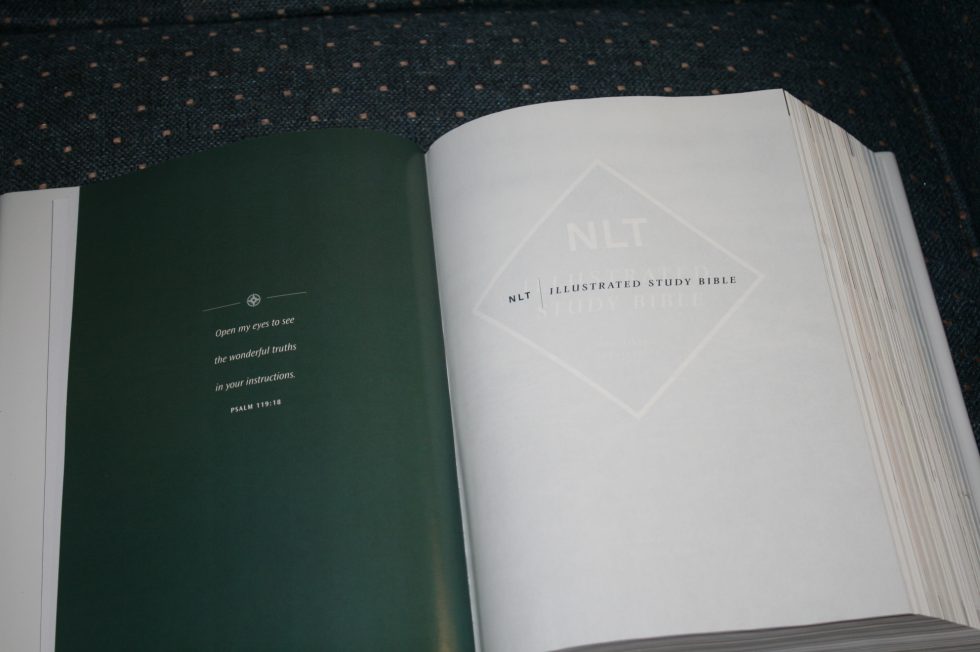
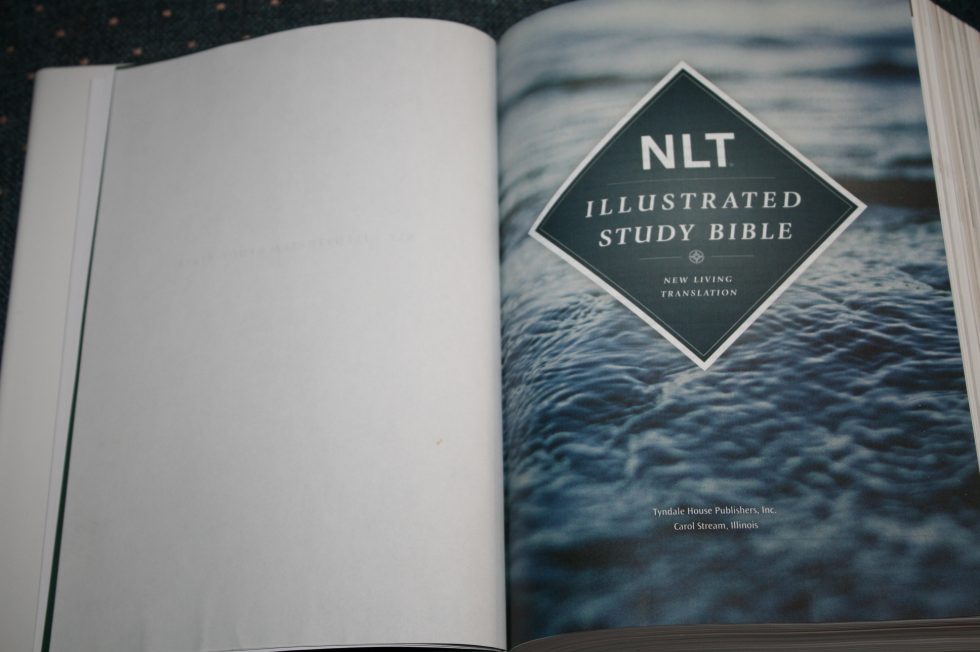
The paper seems to be the same as found in other full-color study Bibles. It doesn’t feel too thin and it’s highly opaque. The opacity has to by high so the full-color photos don’t show through. Show-through is minimal and I haven’t found it to be distracting. Another thing I like is it doesn’t have a glare, so it’s easy to read. I’m not sure of the gsm but I had no trouble turning the pages.
Typography
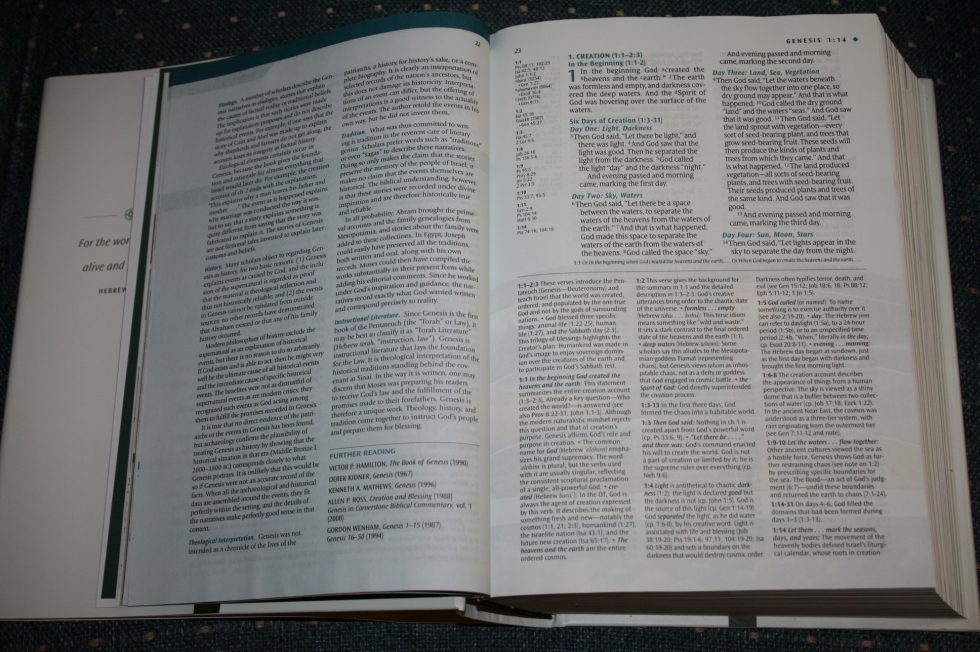
The layout is typical of a modern study Bible. This is a double-column layout in paragraph format. Cross references are placed in the inner margin. This brings the text out of the gutter. Footnotes are placed directly under the text. Study notes are placed at the bottom of the page in three columns.
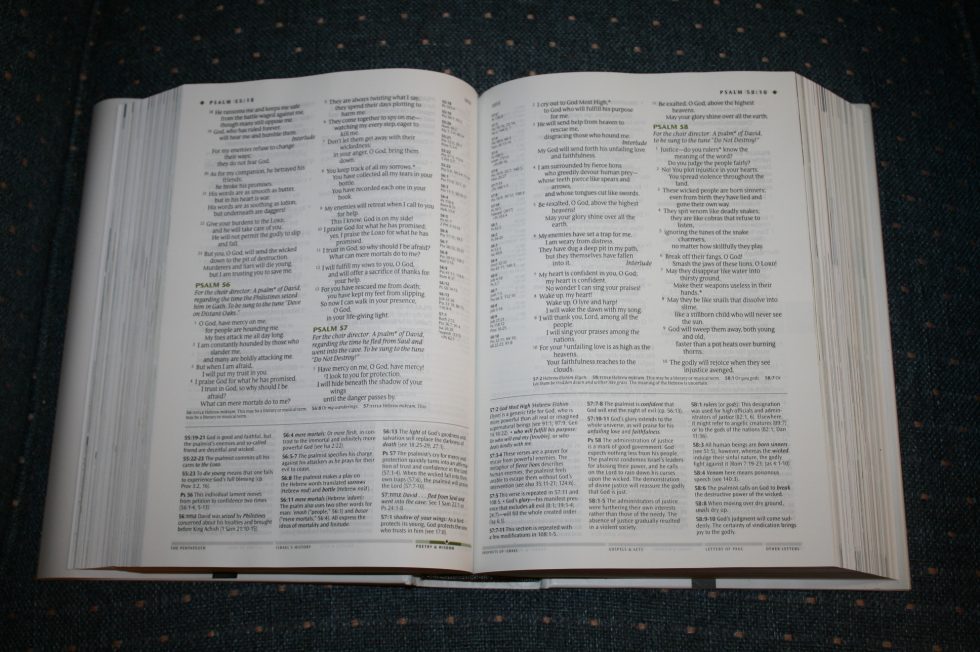
The header includes the page number near the gutter, and book name, chapter, verse, and a colored diamond near the outer edge of the page. In the footer is a color-coded timeline to show where you are in the Bible.
This is a clean layout and it’s easy to use. Everything is separated so nothing gets in the way of anything else and nothing is hard to find. Even all of the extra’s thrown in here and there don’t make the pages feel crowded.
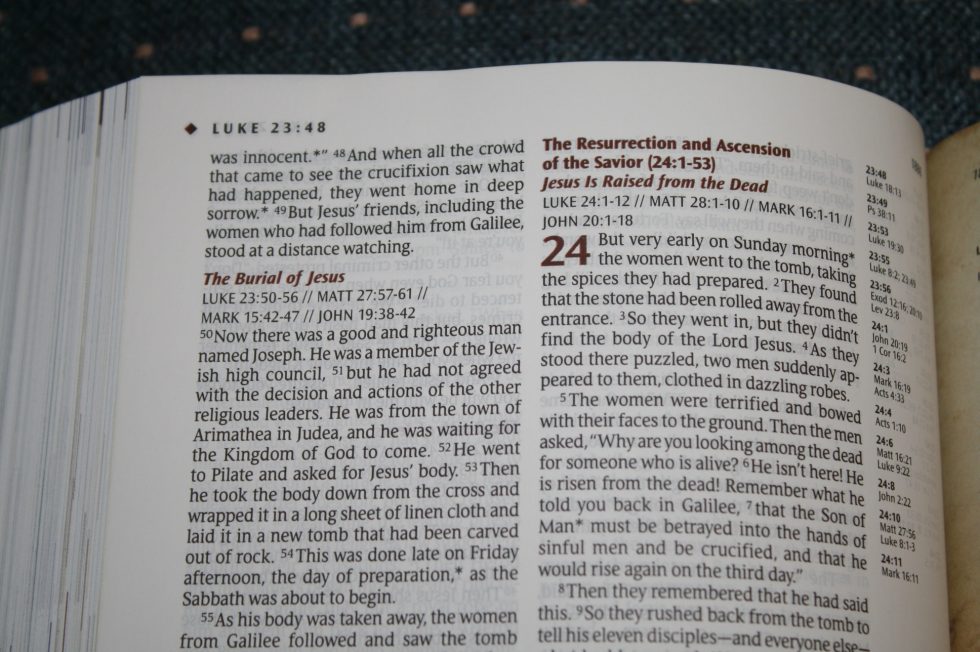
The font is 9-point and is about a medium darkness. It’s dark enough to read easily. The only markings in the text is an asterisks to show you there’s a footnote and letters to key to word studies. The text doesn’t feel cramped or have any awkward spaces.
There’s a chart in the front that covers the timeline of biblical history. Each section of history is color-coded. The highlights of each section of the Bible are colored to match the timeline. This includes chapter numbers section headings, titles and icons used for the short articles, diamond in the header, and the timeline in the footer.
Book and Section Introductions
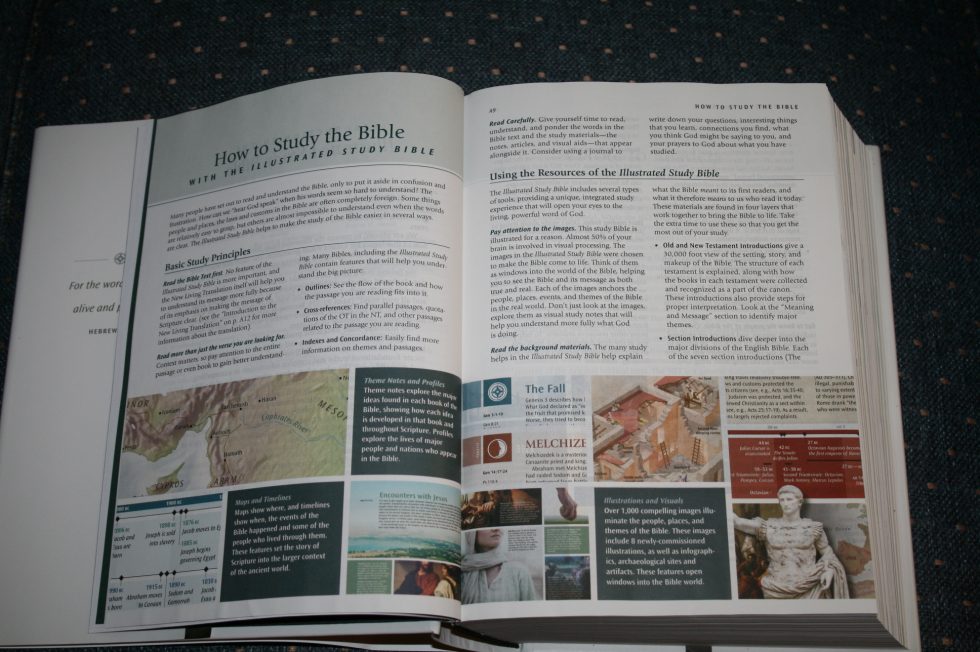
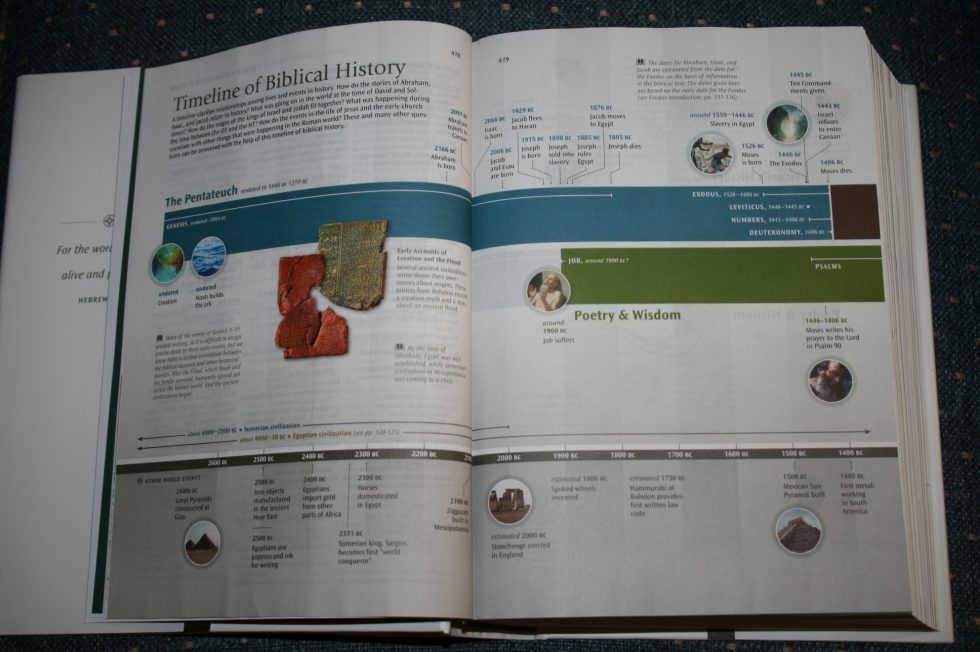
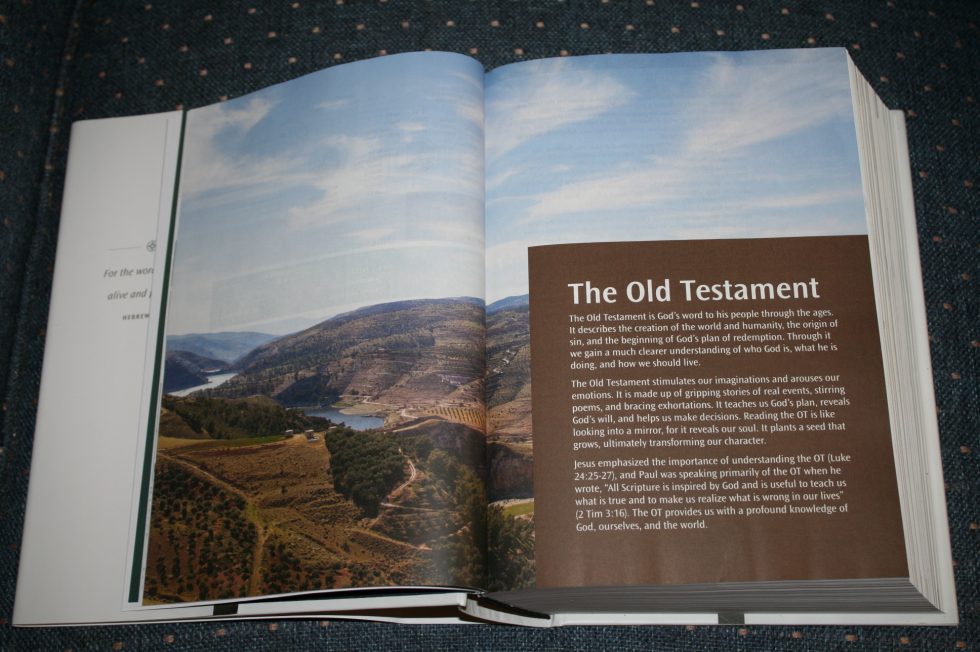
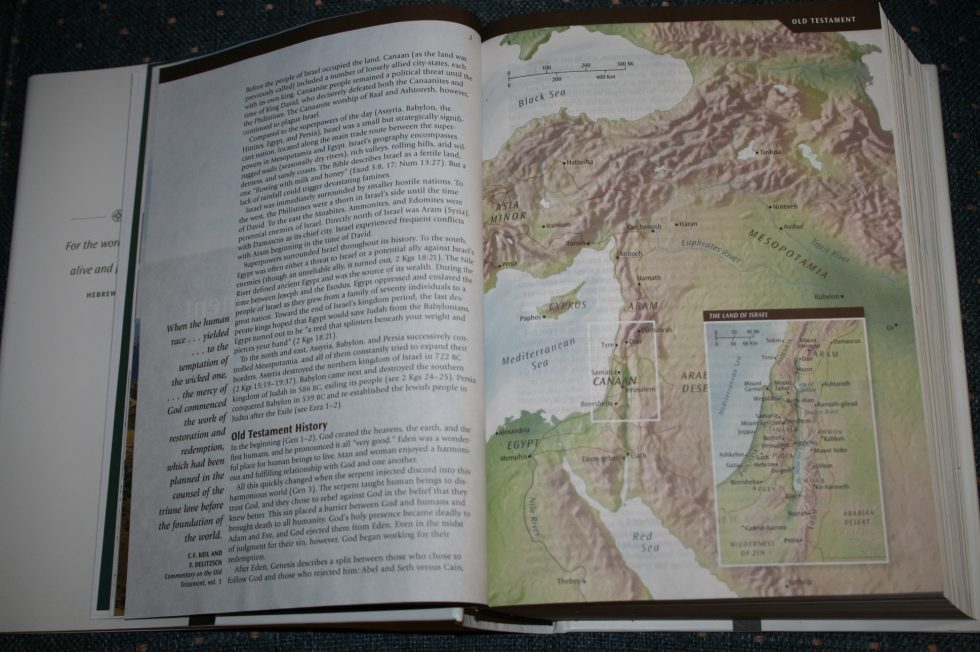
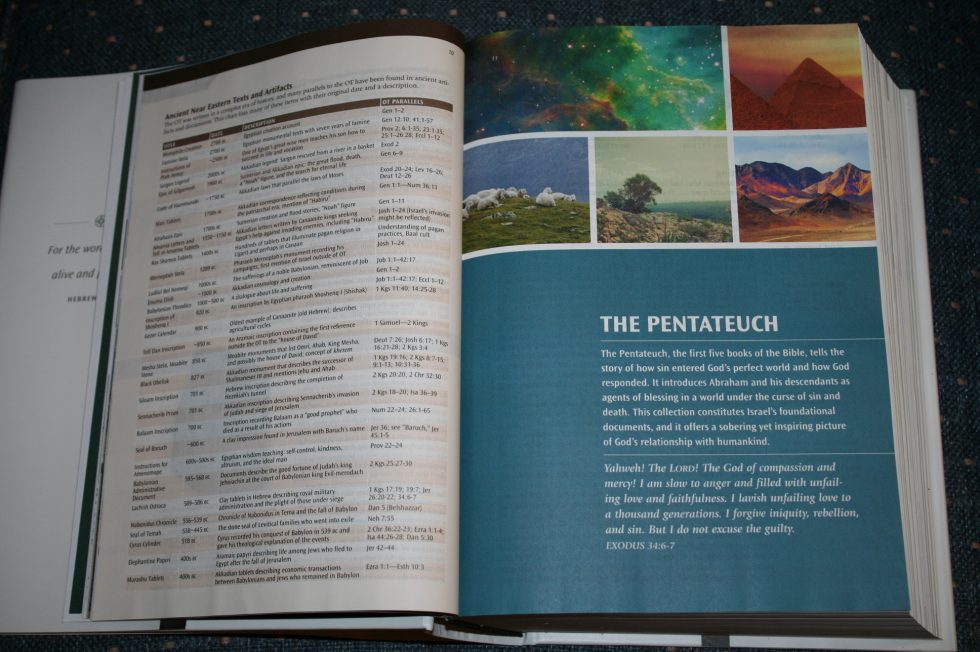
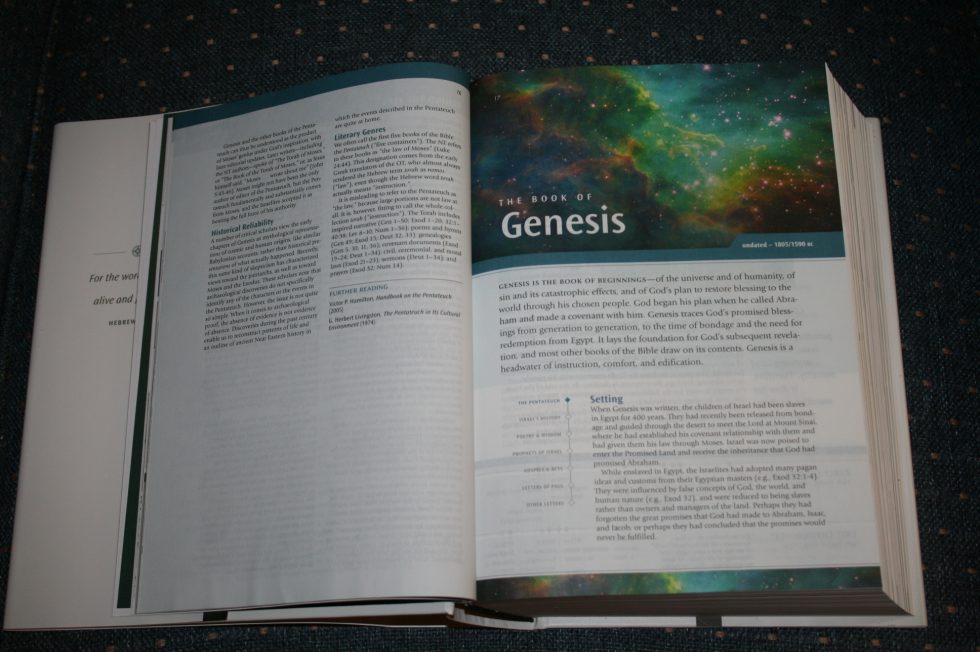
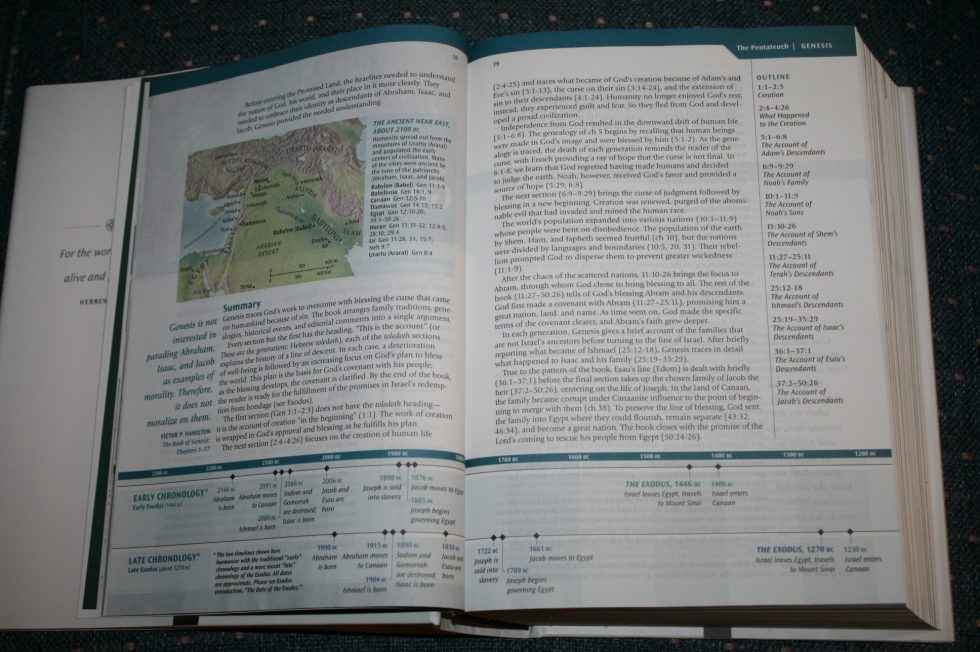
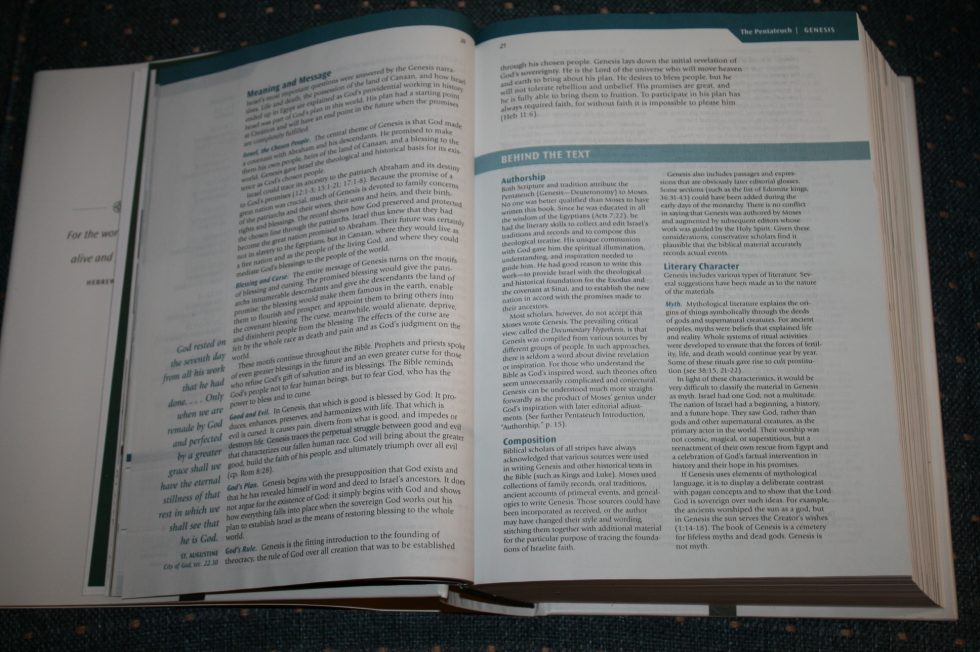

Book and section introductions include a color photo, dates, opening statement, where the book falls in the timeline, setting, summary, meaning and message, charts, maps, outlines, behind the text, and resources for further reading. They take around 3-6 pages, depending on the size of the book. They include quotes from prominent leaders in Church history. There’s a lot of good information here to help understand the culture and setting.
References

Cross references show the chapter and verse number they correspond to. There are no keys to references in the text so it can be difficult to know which part of a verse the reference is for. Even though that makes them more difficult to use this is the method I prefer because it keeps the text clean. Here are some examples:
- Genesis 1:1 – Pss 89:11; 102:25; Isa 42:5; 48:13; John 1:1-2 + word studies
- Matthew 17:20 – Matt 21:21; Mk 11:23; Lk 17:6; 1 Cor 13:2
- Mark 11:23 – x
- John 1:1 – Gen 1:1; 1 Jn 1:1; 5:20 + word studies
- 1 John 1:1 – Jn 1:1, 4, 14 + word studies
Footnotes
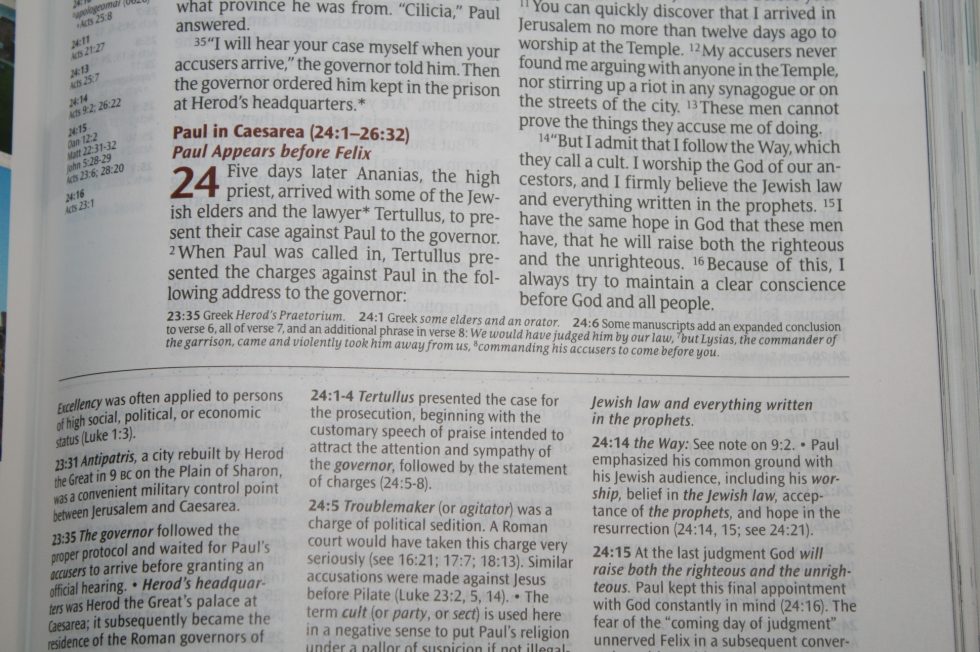
Footnotes are placed just under the text and show the chapter and verse number. They include textual variants with the manuscript identified, weights and measures, verse number differences in Hebrew, Hebrew and Greek explanations, alternate renderings, where verses are quoted from, meanings of names, and cultural or historical information about places, things, and people, and more.
Word Studies
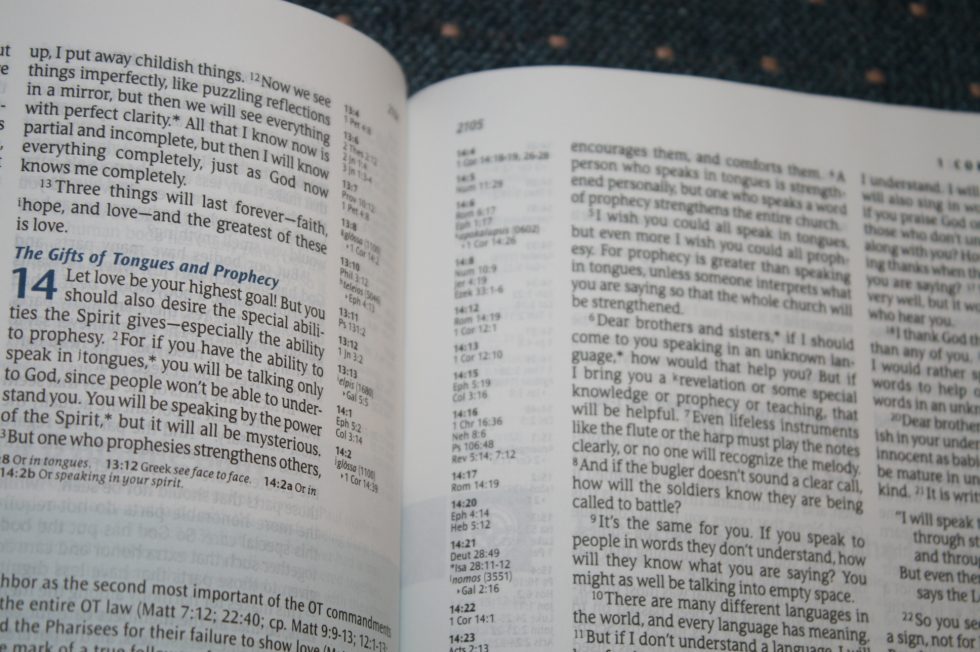
Word studies are placed within the references and are keyed to the text with letters. These are Hebrew and Greek words with the corresponding Strong’s number for your own reference. These tie to the Hebrew and Greek dictionary in the back.
Study Helps
There are several types of study helps within the text including notes, articles, charts, maps, etc.
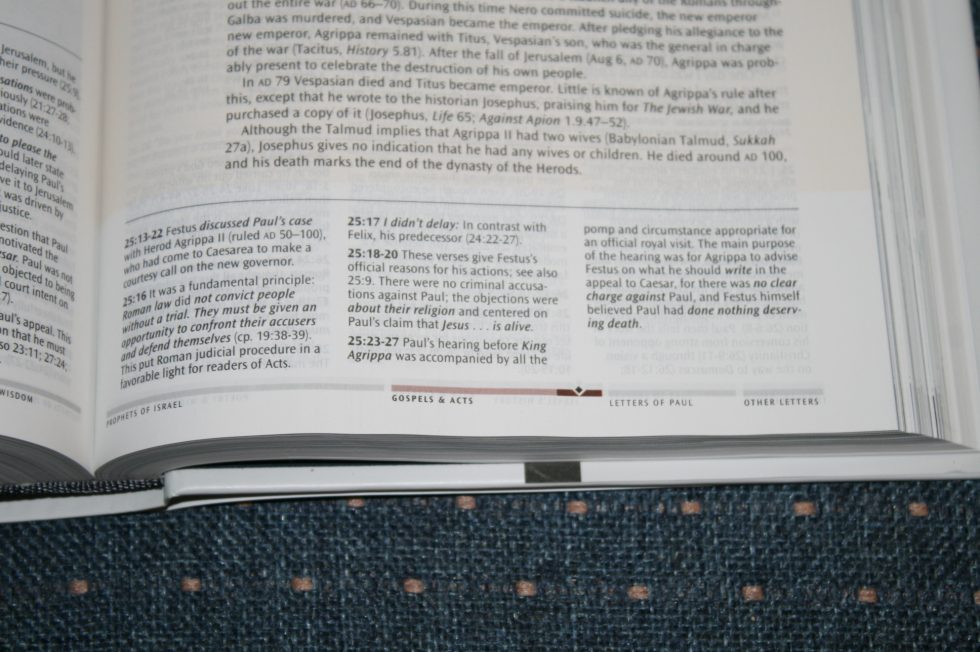
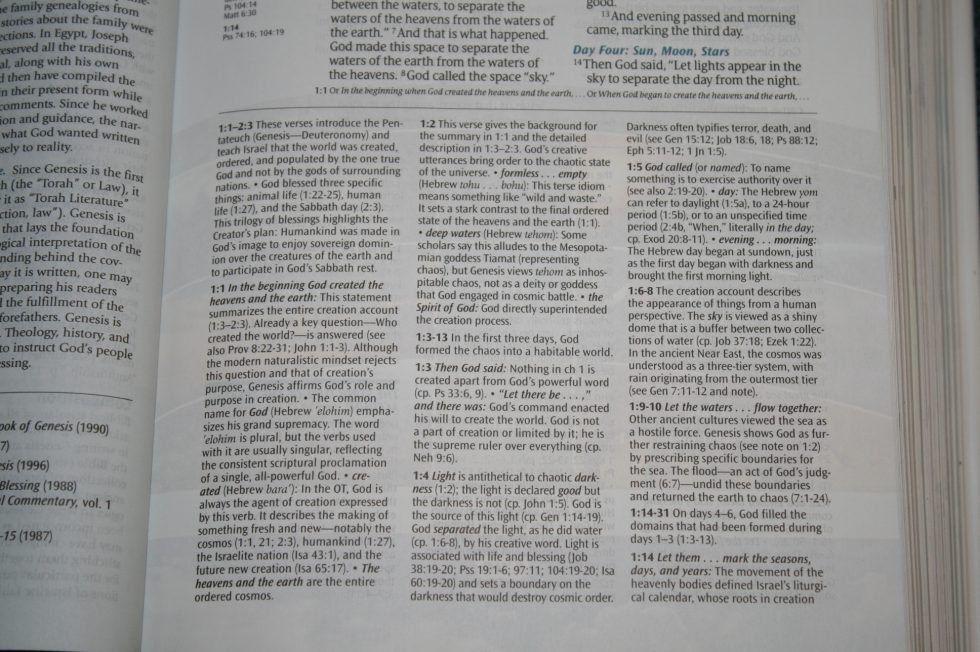
The study notes appear under the text in three columns. They give the chapter and verse number in bold and the portion of text they correspond to in italics. They include explanations and cross references. When doctrine is discussed and there is more than one possible explanation all of those explanations are given. I prefer this because it gives you points to study rather than only showing one view.
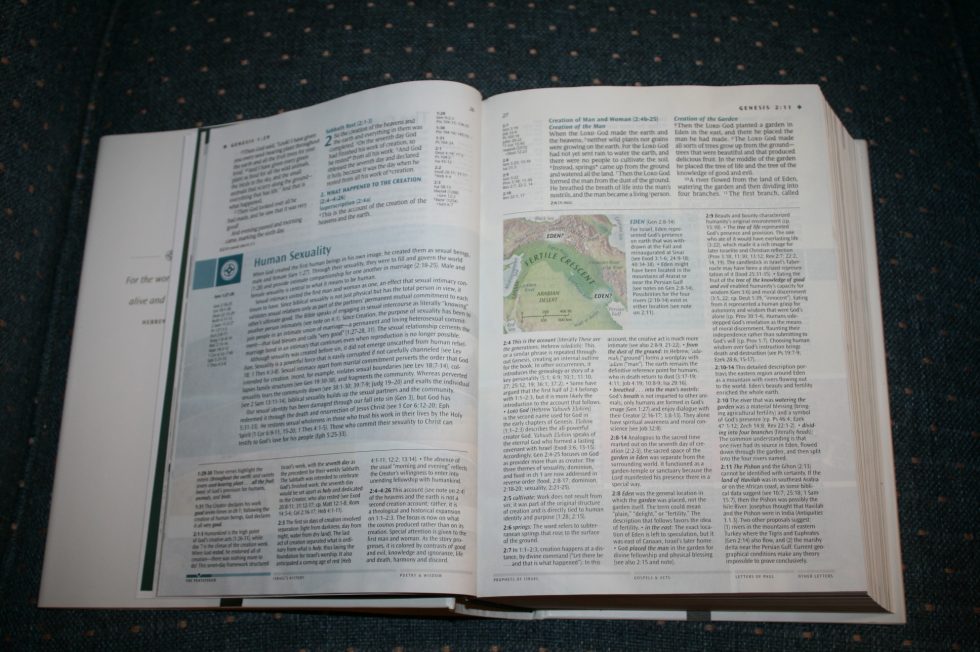
On many pages there are other helps that are placed above the study notes. These include maps, facts about places and people, topical information such as living for God, etc. These describe the culture, gives information key biblical characters, contain short articles about biblical principles, and more.
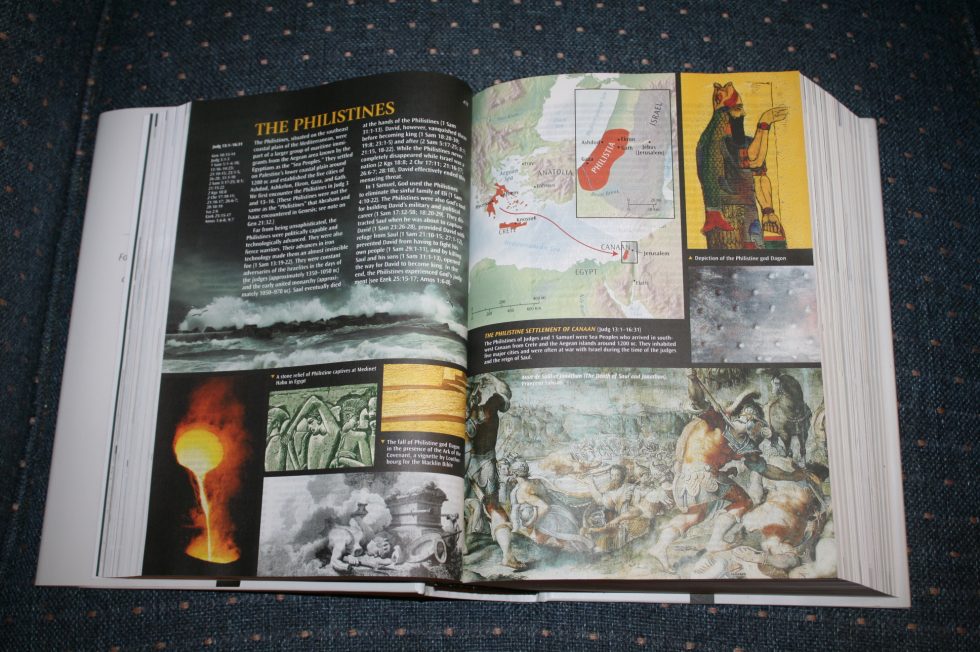
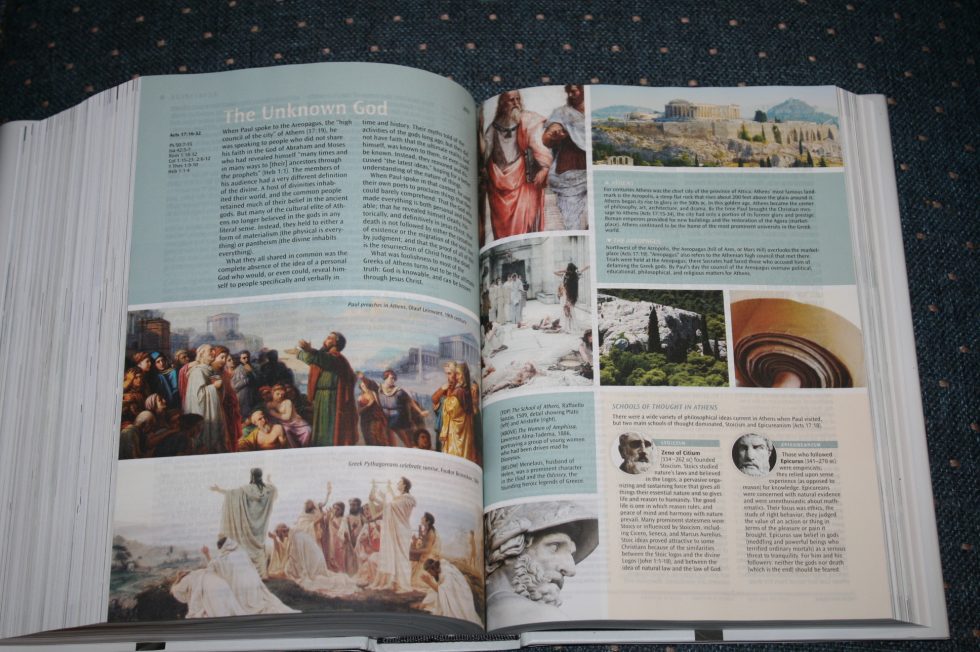
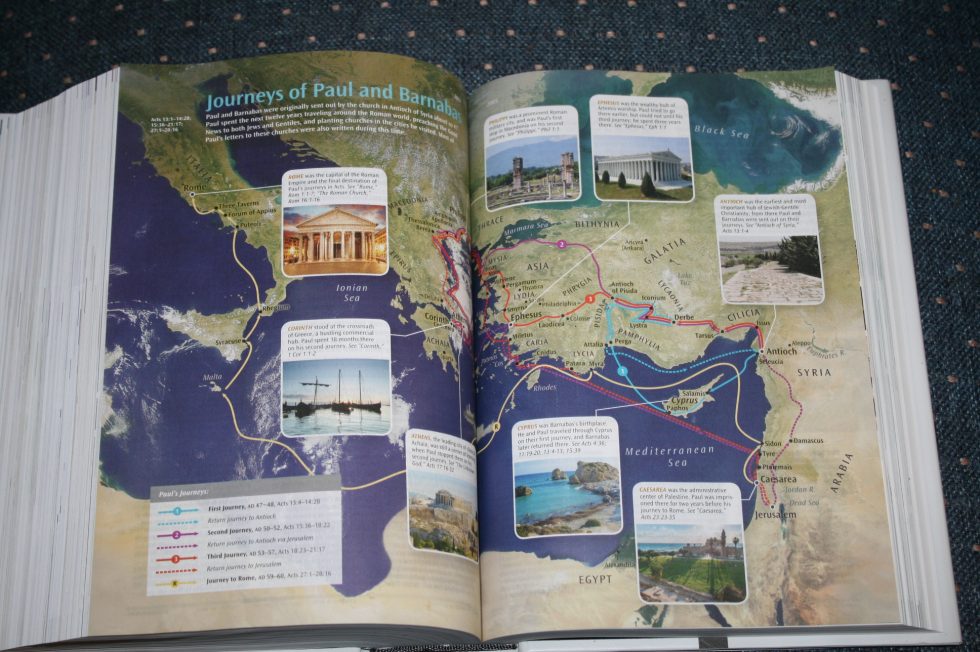
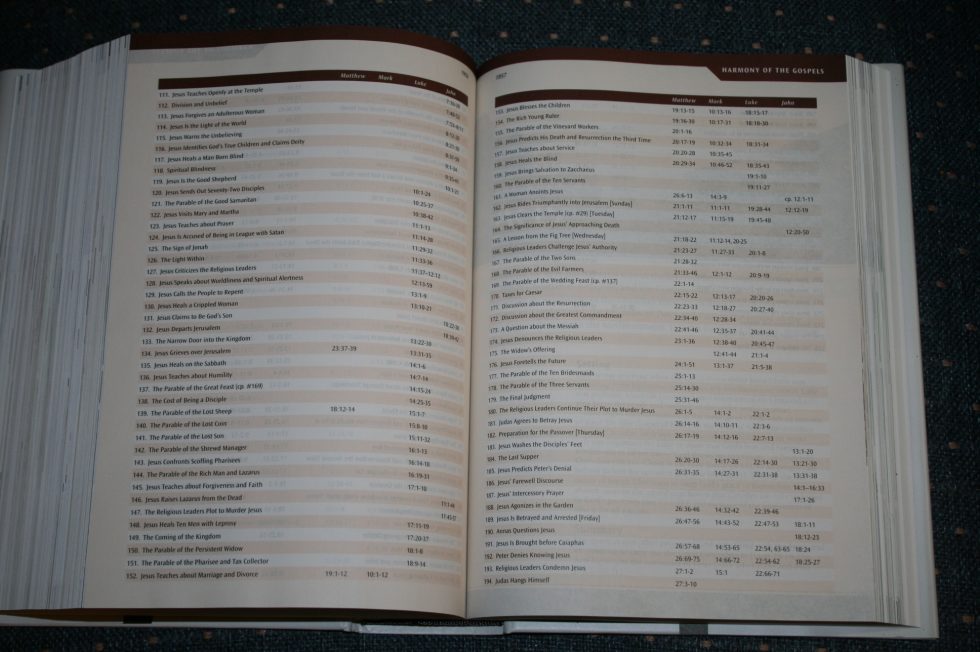
There are several charts that take one or two full pages. They include character studies, events, and places. Some have a few paragraphs and fill the pages with multiple photos. Others include timelines, maps, artifacts, and various other helps and information.
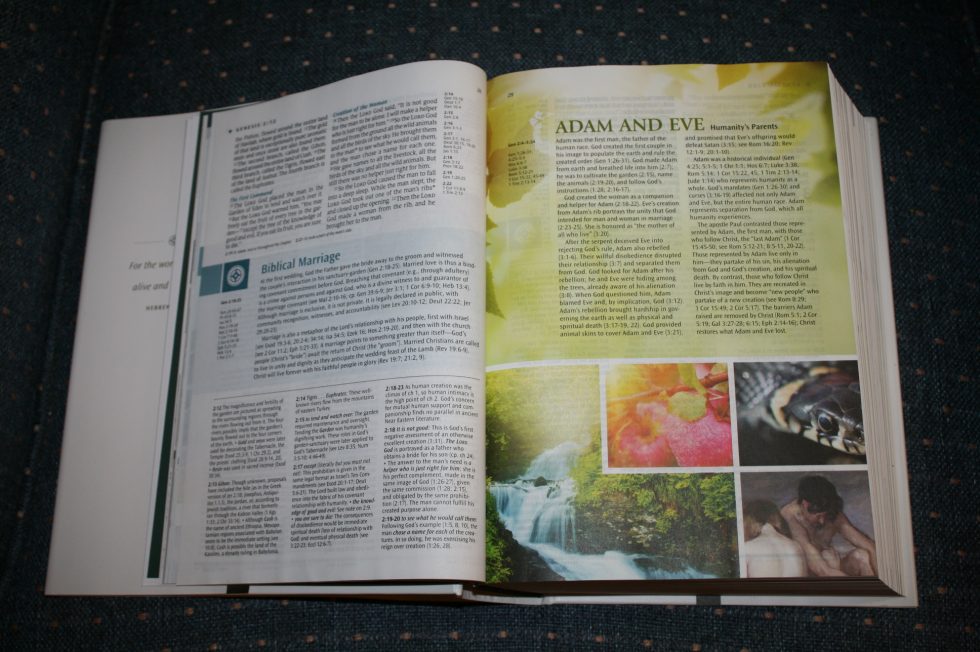
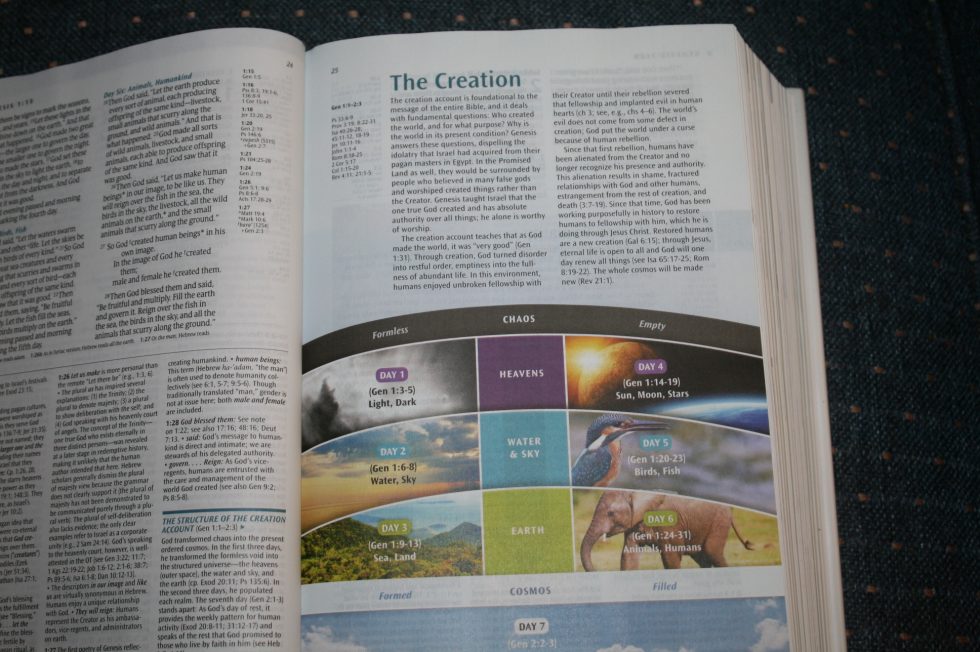
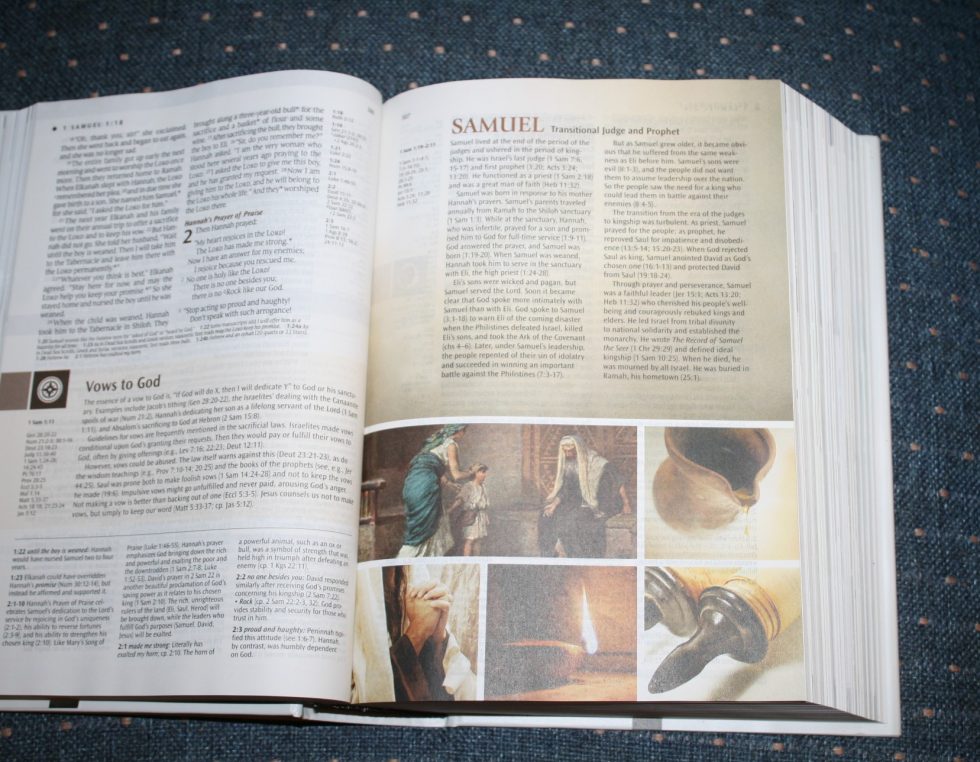
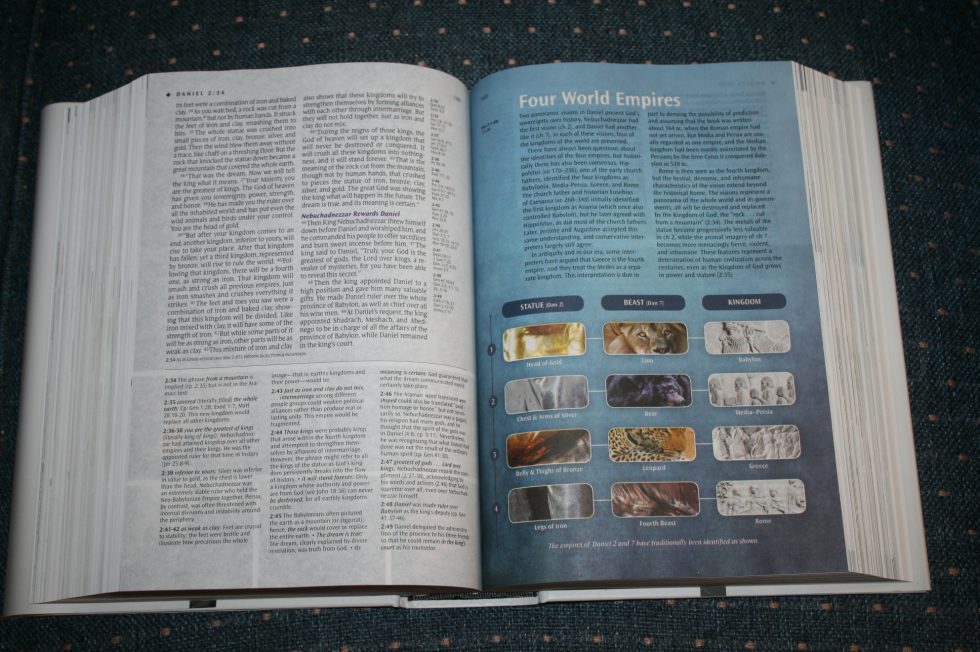
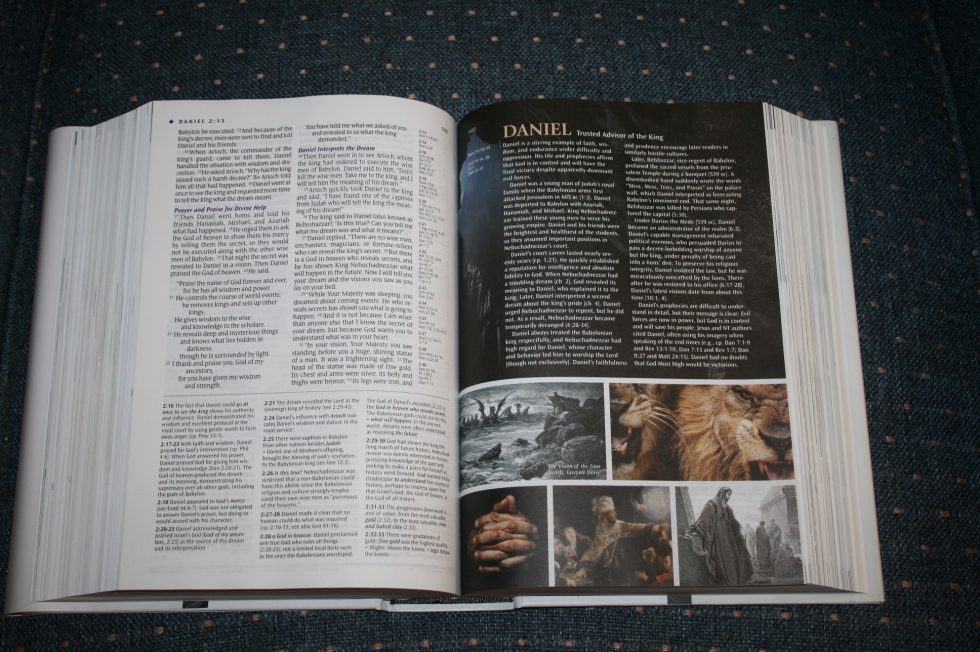
There are also several articles that take up a full page. These include topics such as the Holy Spirit and baptism in Acts 2. These contain some doctrinal material and often shows multiple interpretations and facts from history and the culture of the time.
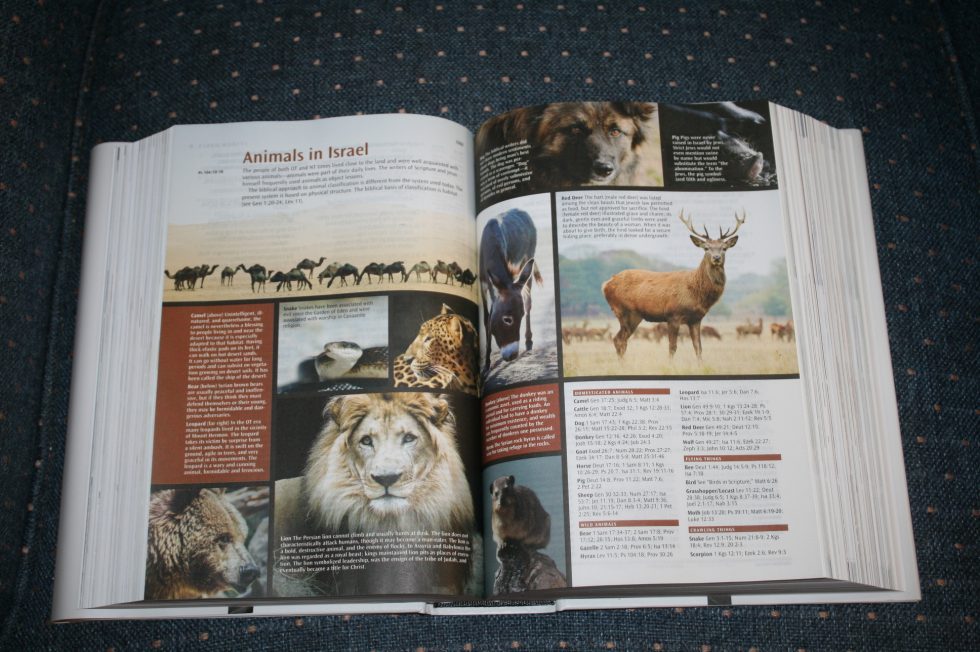
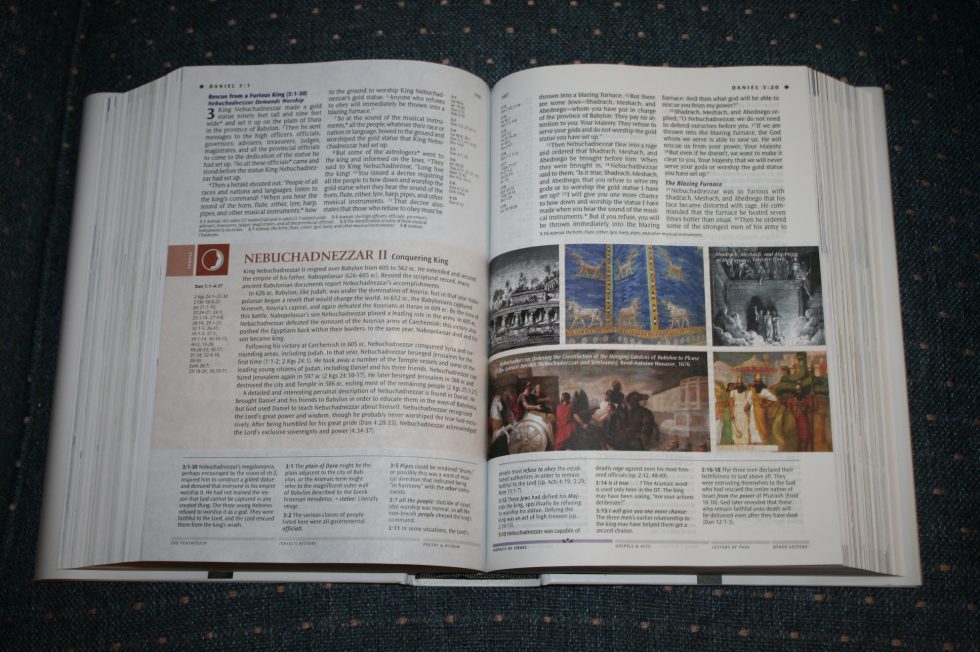
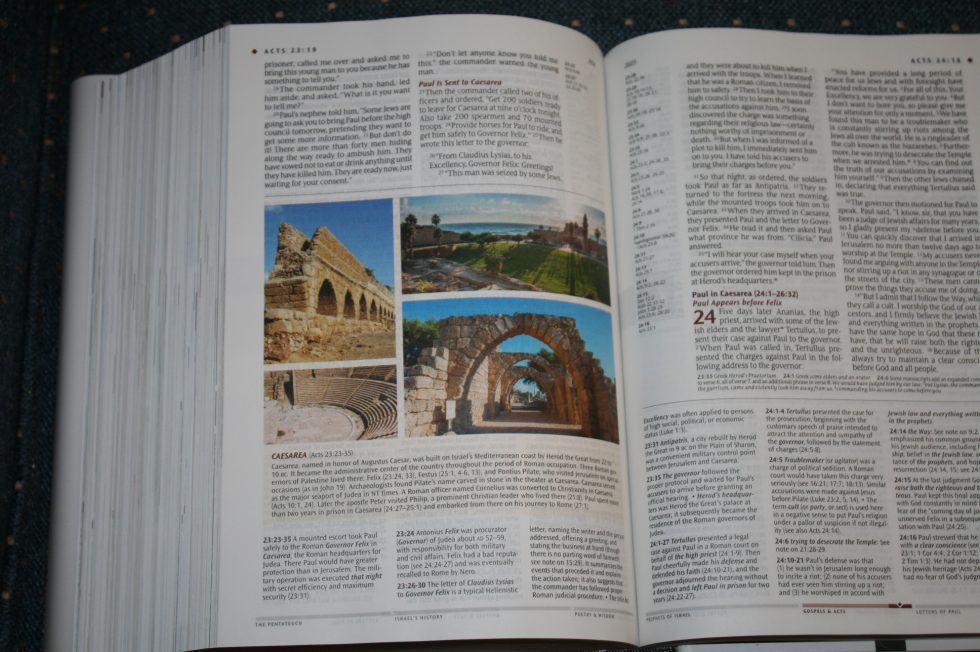



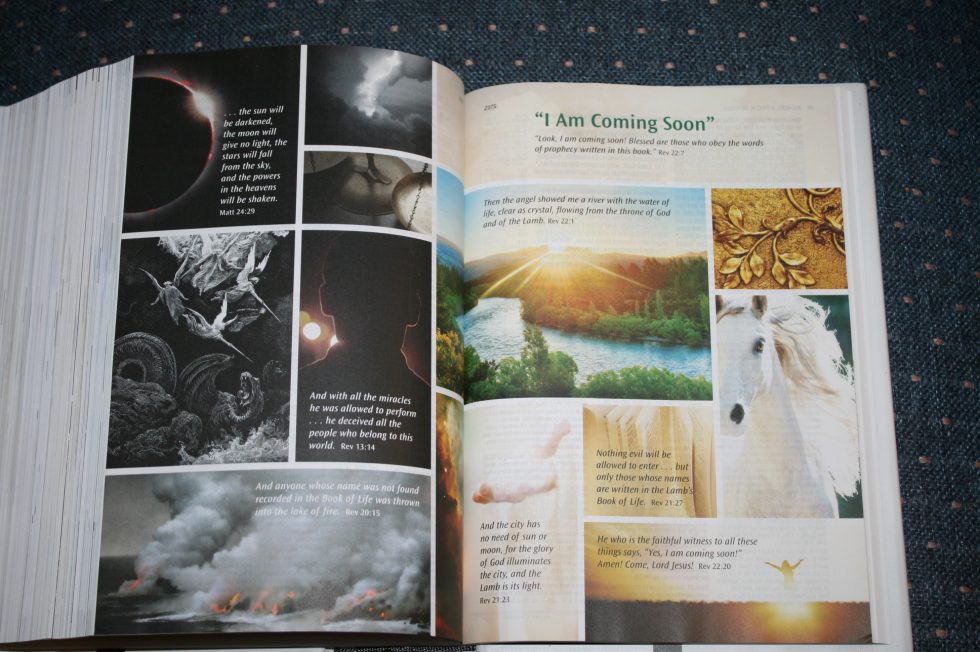

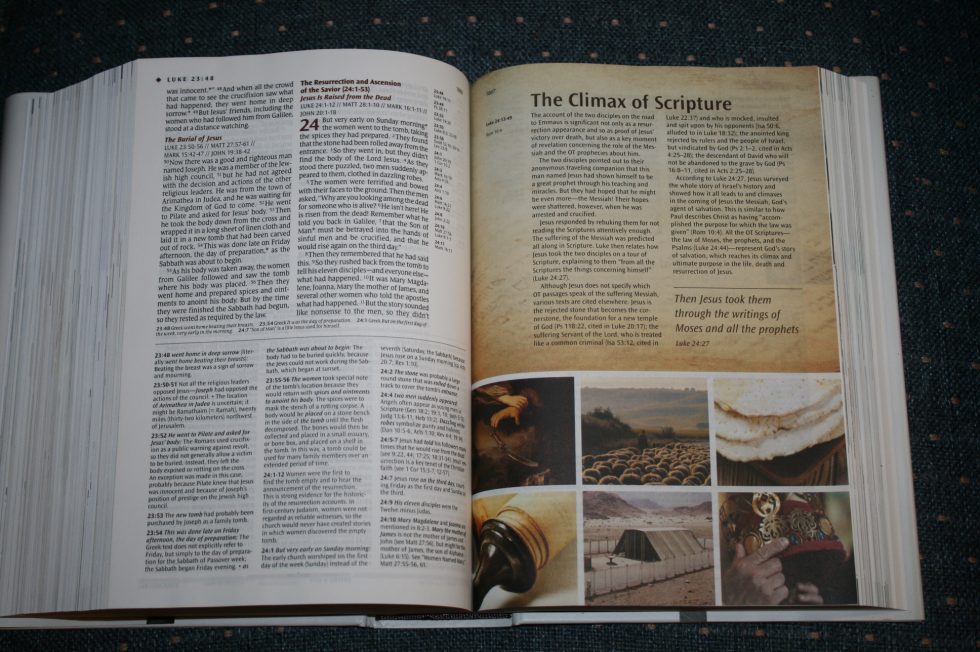
The photos and charts are colorful and look great. They are highly detailed and don’t show through the pages bad at all. There is a lot of useful information in the helps. I like that it often gives multiple views.
Reference Materials
There are several sections of reference material in the back that are great for study. They’re mostly indexes and word studies rather than articles. This is the kind of material I like to have in a study Bible. They’re helpful for personal study, group study, and sermon prep.
Table of Ancient Weights, Measures, and Coins
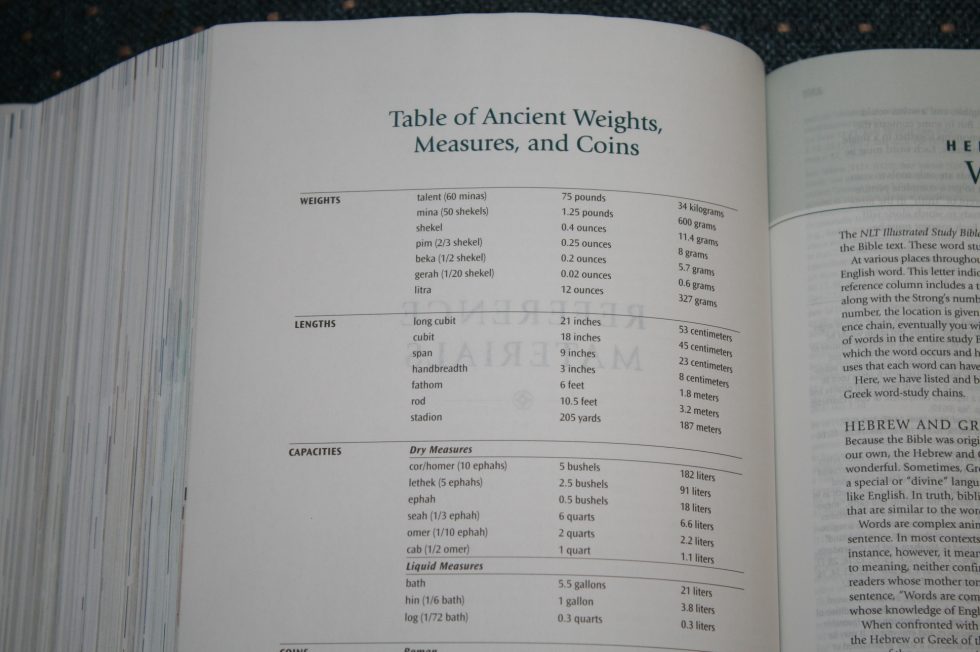
This is a single page table that’s simple and easy to use.
Hebrew and Greek Word Studies
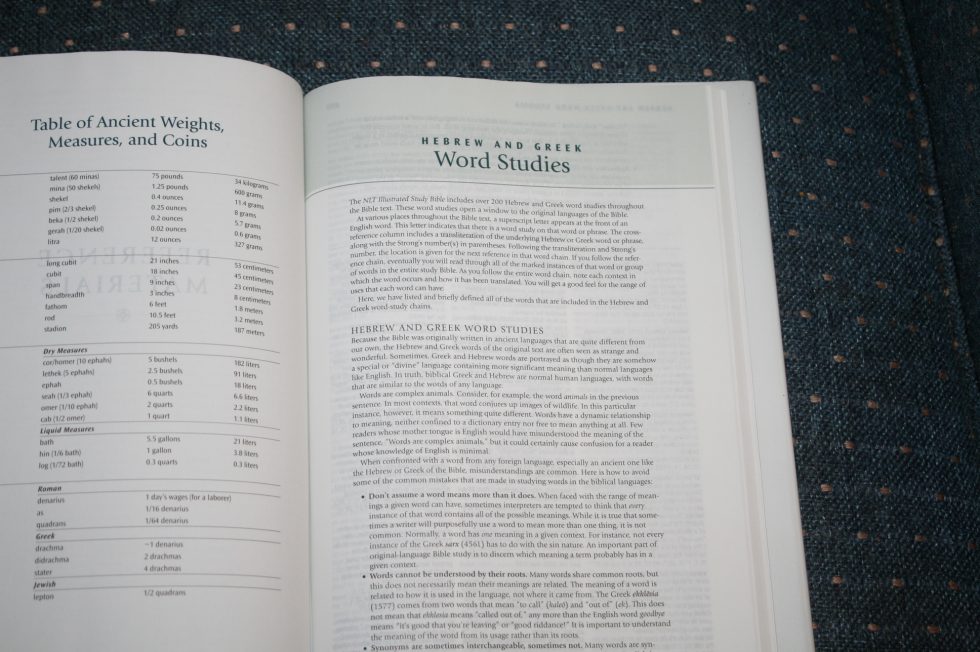
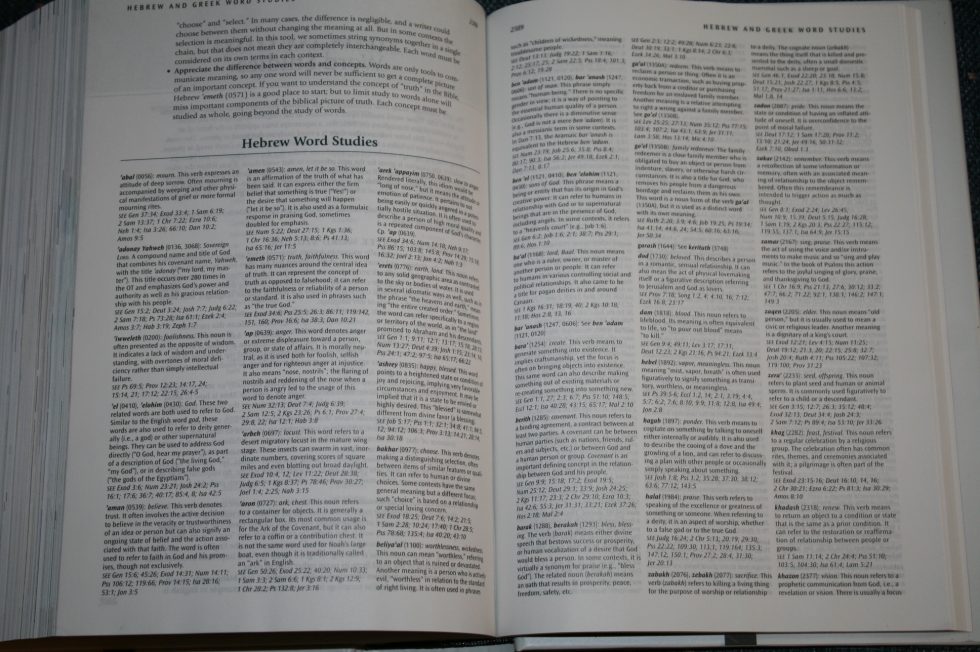
There are 200 word studies throughout the text and their definitions are placed here in this section. It gives the word, Strong’s number, definition, and key verses where the word is used. It also gives information about word studies and how to use and interpret them.
Features Index
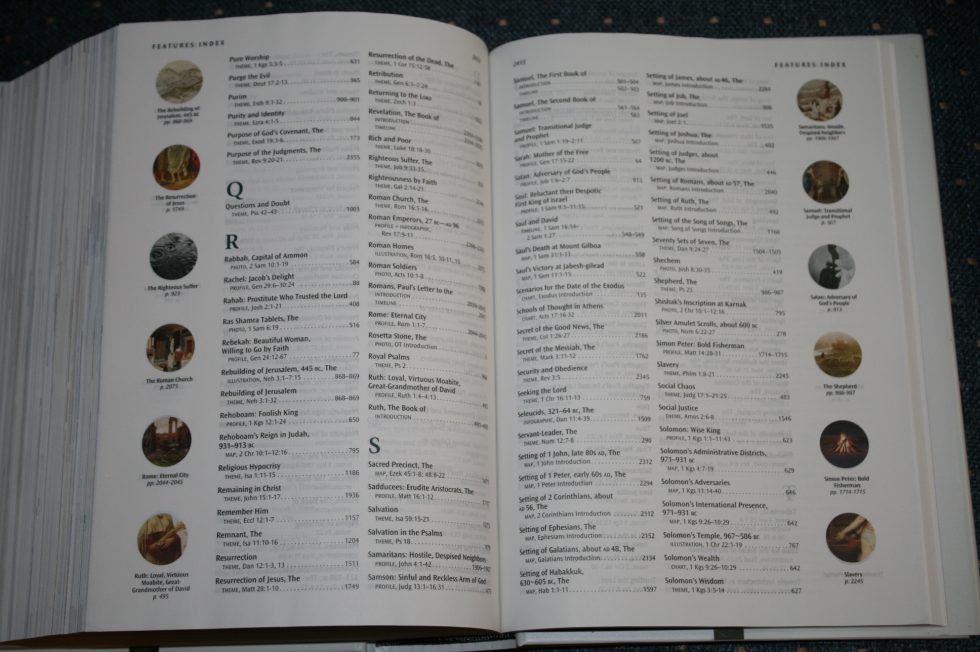
This is an index to all of the articles and studies throughout the text. It gives you the name of the topic, type of feature (profile, map, etc.), reference, and page number.
Notes Index
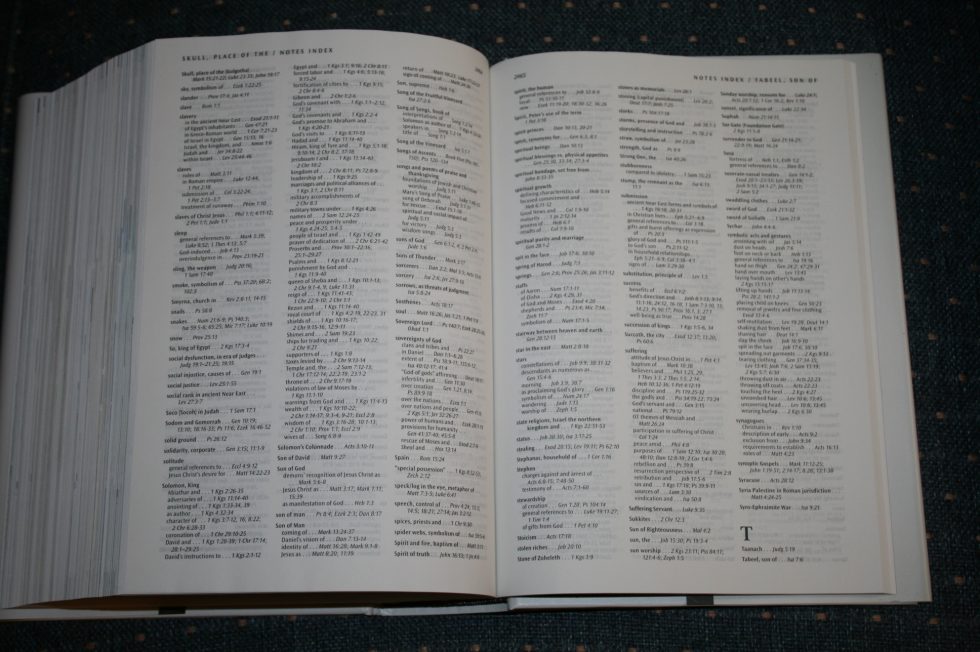
This gives you the topic for the study notes, and the references where the topic is discussed.
Dictionary / Concordance
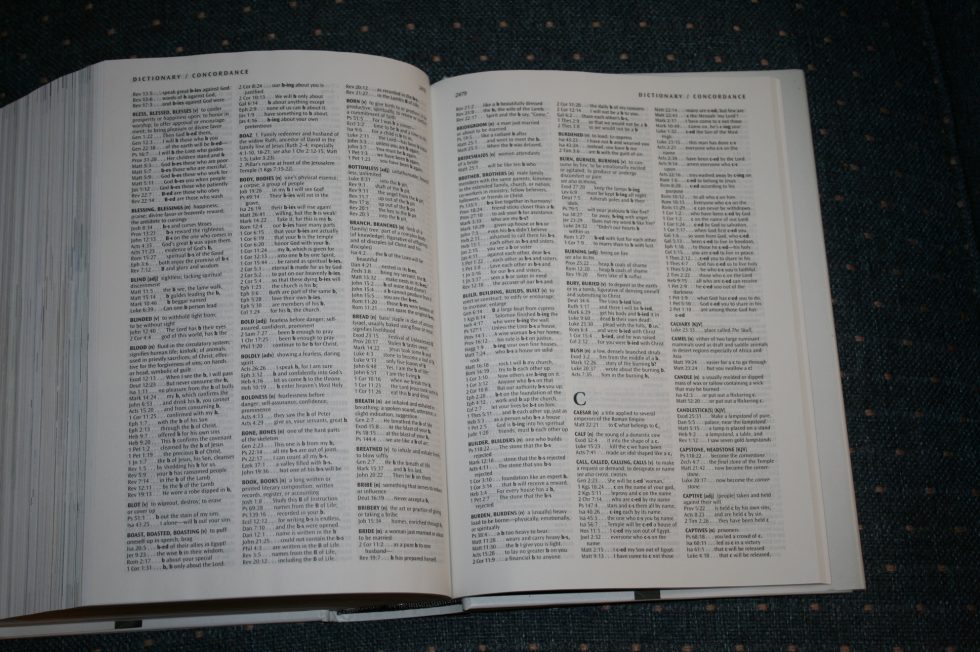
The dictionary / concordance is 85 pages and has 3 columns per page. It works just like a regular, good quality, concordance and adds a definition after the entry name. The entries include multiple variations of a word. And show the part of speech.
- Christ (n), see also Jesus, Messiah – 95
- Christian, Christians, (n) – 3
- Faith (n), see also believe, trust – 106
- Faithful (adj.), see also loyal, trustworthy – 43
- Faithfulness (n) – 15
- Praise, Praises (n) – 18
- Praise, Praised, Praises, Praising (v) – 44
- Pray, Prayed, Praying, Prays (v) – 42
- Prayer, Prayers (n) 20
Maps
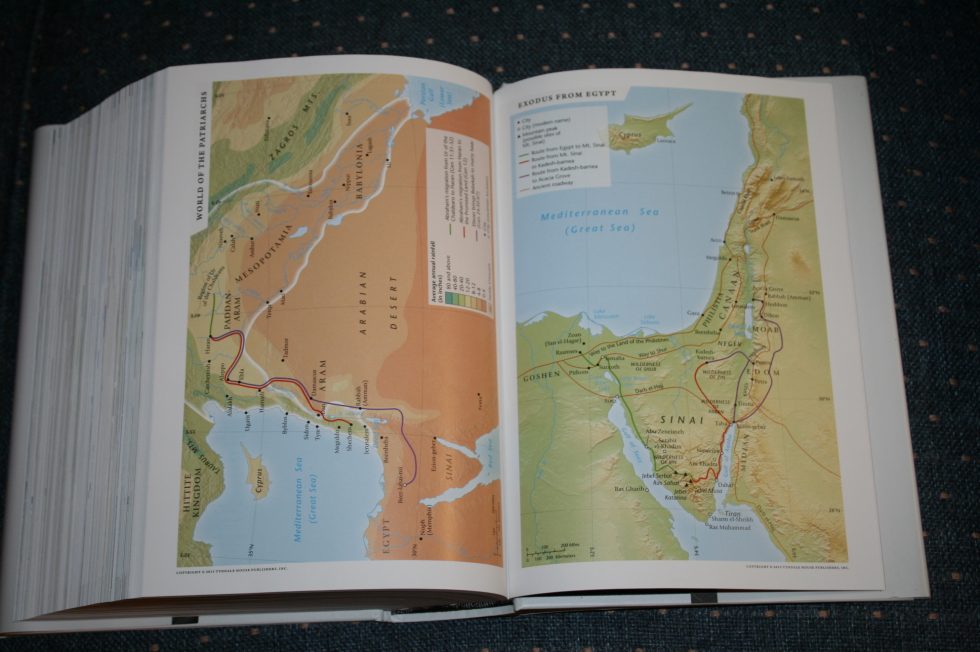
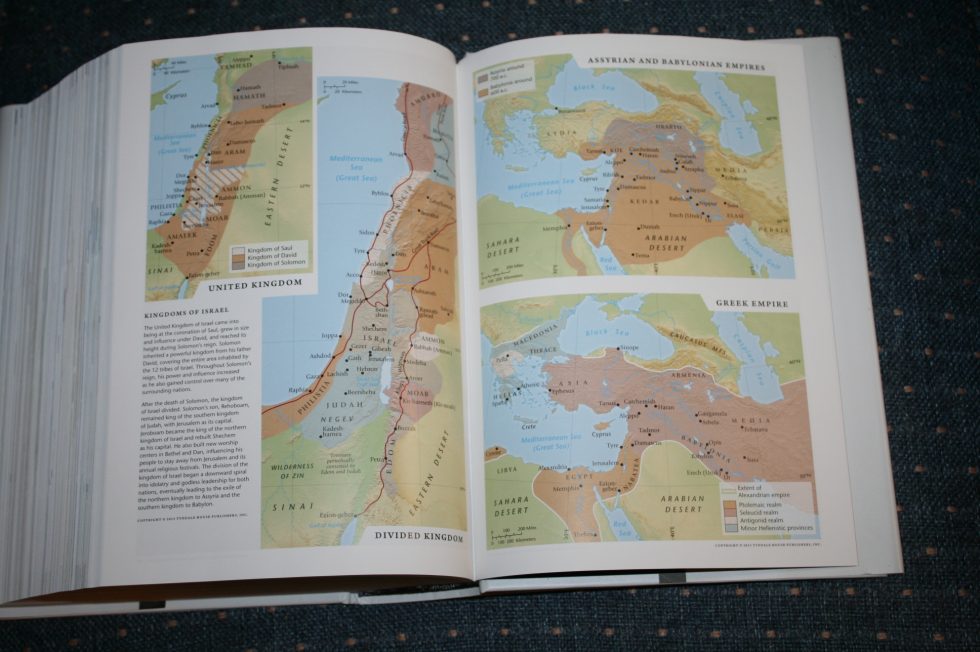
There are 16 colorful maps printed on 14 thick glossy pages. They’re annotated and include topography, routes, borders, water, distance, facts, and related Scriptures.
Maps include:
- Topography of Palestine
- World of the Patriarchs
- Exodus from Egypt
- Twelve Tribes of Israel
- United Kingdom
- Divided Kingdom
- Assyrian and Babylonian Empires
- Greek Empire
- Old Testament Jerusalem
- New Testament Jerusalem
- Roman Division of Palestine
- Ministry of Jesus
- Paul’s Missionary Journeys
- Paul’s Journey to Rome
- Roman Empire and the Spread of Christianity
- Israel and the Middle East Today

There are also lots of maps throughout the text. There is an index to those maps in the back that shows the map name and page number.
Conclusion
The NLT Illustrated Study Bible has a lot of information and useful tools. It isn’t filled with color photos just for the sake of color photos. There are plenty of charts, artifacts, places, character studies, timelines, word studies, commentary, articles, and indexes to help with any kind of study. I enjoyed using it and I recommend it to anyone looking for a study Bible in the NLT.
Tyndale provided this Bible free for review. I was not required to give a positive review – only an honest review. My opinions are my own.
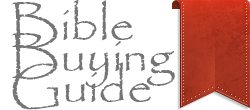
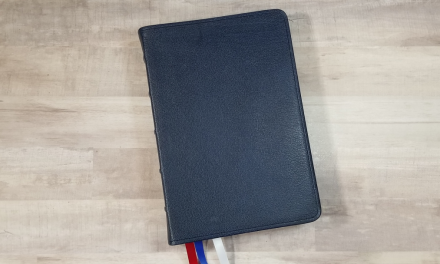
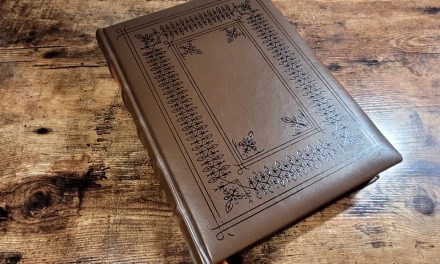

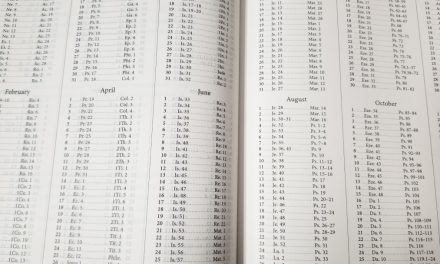
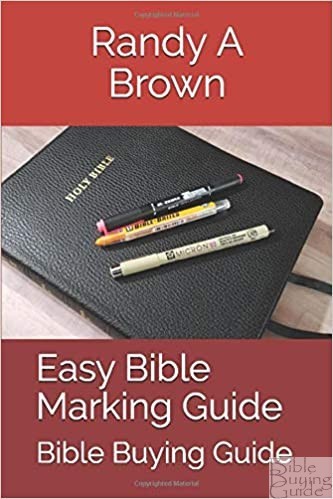
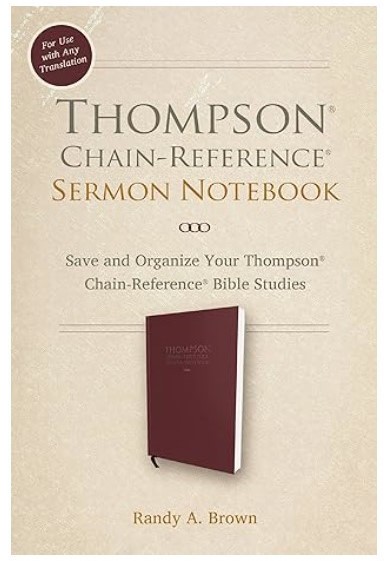
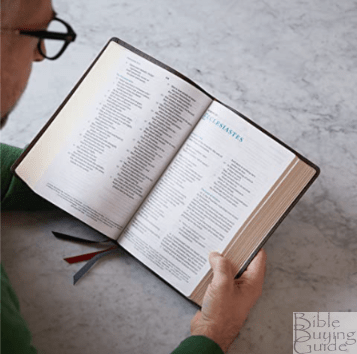

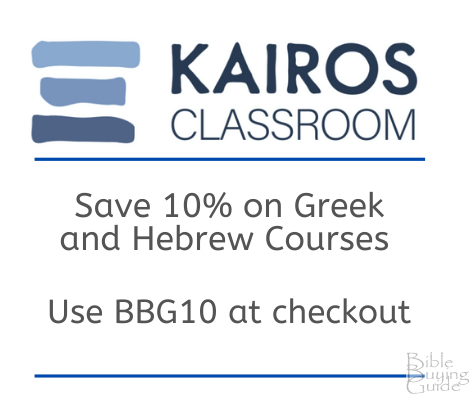
Hello,
Thank you for your comments, I read them a lot these days ! Did you compare this NLT Study Bible (illustrated) to the NLT Study Bible (non illustrated) ? I am wondering what are the differences – that would be helpful to make a choice between them.
Hi Sophie! I haven’t compared them. That’s a great idea. I’ll have to do that soon.
I would imagine that one bible has illustrations and the does not. I have to say though – that is just a guess.
I would imagine that one bible has illustrations and the other does not. I have to say though – that is just a guess.
Randy, Belated thanks! Your review led me to get this Bible some time ago!
Please does the Illustrated study Bible comes only in the NLT version?
Thomas Nelson Publisher’s has a full color bible using the NKJV.